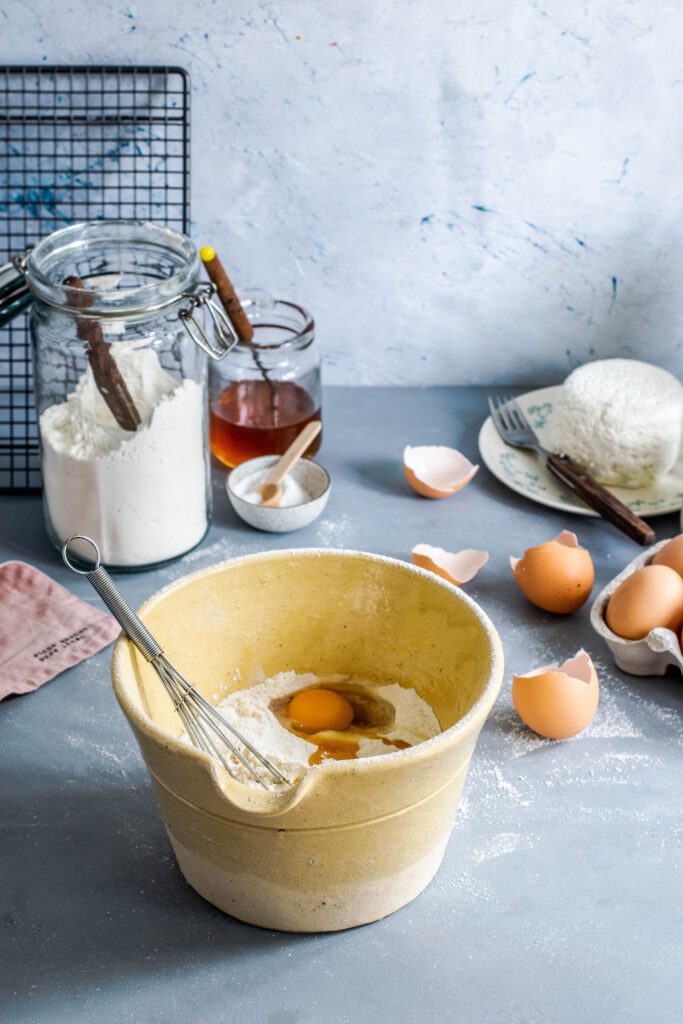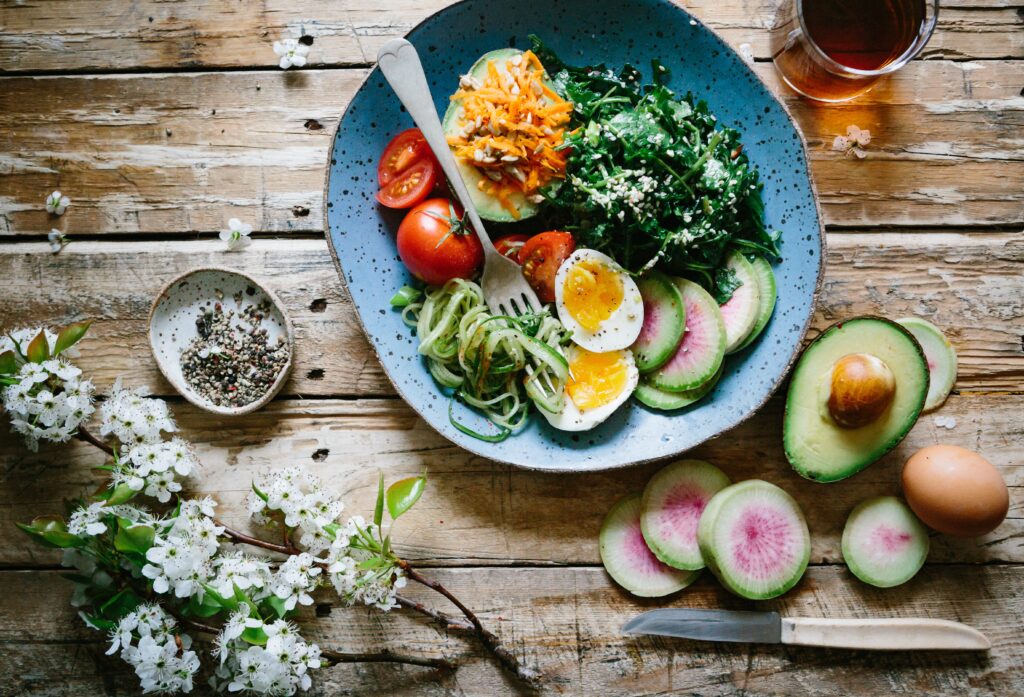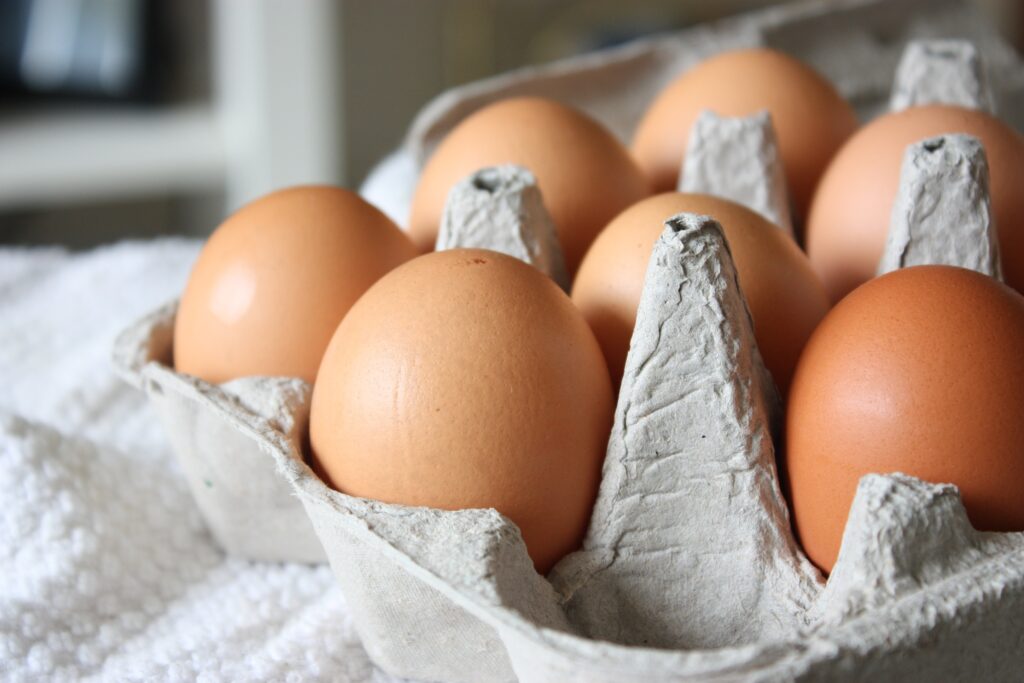This informative article presents a step-by-step guide on how to achieve the utmost perfection in scrambled eggs. By incorporating various techniques and ingredients, one can elevate this classic breakfast dish to new heights. The article emphasizes the importance of whisking the eggs to introduce air and create a light, fluffy texture. Additionally, it advises incorporating fat, such as milk, cream, or butter, to impart a velvety smoothness and enhance the overall flavor. The choice of a nonstick pan and a rubber spatula is recommended for optimal cooking results. Starting with medium heat and gently folding the eggs allows for the creation of luscious, large soft curds. Furthermore, the article cautions against overcooking and suggests removing the eggs when they are still slightly wet. To cater to individual preferences, the recipe can accommodate any type of eggs and provides the option of pre-cooking mix-ins before adding them to the eggs. By following these instructions, readers will attain scrambled eggs that are unparalleled in both taste and texture.

Ingredients
Scrambled eggs are a classic breakfast dish that can be enjoyed any time of the day. To make the best scrambled eggs, you will need the following ingredients:
Whisked eggs
Eggs are the star of the show when it comes to scrambled eggs. Whisking the eggs adds air and results in fluffy eggs. You can use any type of eggs, such as chicken eggs or duck eggs, depending on your preference.
Milk, cream, or butter
To achieve creaminess and enhance the flavor of the scrambled eggs, you can add a small amount of fat. This can be in the form of milk, cream, or melted butter. The choice is up to you and your taste preferences.
Salt and pepper
To season the scrambled eggs, you will need salt and pepper. These basic seasonings help bring out the flavors of the eggs and elevate the overall taste of the dish.
Optional mix-ins
To personalize your scrambled eggs, you can add a variety of mix-ins. These can include cooked vegetables like onions, bell peppers, or mushrooms. You can also add cheese, herbs such as chives or parsley, or even protein options like bacon, sausage, or ham. The possibilities are endless, and you can get creative with your mix-ins based on your personal preferences.
Tools
Before you start making scrambled eggs, make sure you have the right tools on hand. Here are the essential tools you will need:
Nonstick pan
A nonstick pan is recommended for cooking scrambled eggs to ensure that they don’t stick to the surface and to make clean-up easier. This type of pan allows for easy flipping and stirring without the eggs sticking to the bottom.
Rubber spatula
A rubber spatula is the best tool for cooking scrambled eggs. Its soft and flexible edge allows you to fold and stir the eggs gently without scratching the nonstick pan.
Whisk or fork
To whisk the eggs, you will need a whisk or a fork. Whisking helps to incorporate air into the eggs, resulting in light and fluffy scrambled eggs. If you don’t have a whisk, a fork can still do the job, although it may take a bit more effort and time.

Preparation
Before you start cooking the scrambled eggs, there are a few preparation steps you should follow to ensure everything is ready to go. Here is what you need to do:
Prepare the mix-ins
If you are planning to add mix-ins to your scrambled eggs, such as cooked vegetables, cheese, or herbs, it’s best to have them prepped and ready before you start cooking. Chop any vegetables or herbs and shred or grate any cheese that you plan to use. If you are using meat like bacon, sausage, or ham, ensure it is cooked and ready to be added to the eggs.
Crack and whisk the eggs
Crack the desired number of eggs into a bowl. Use a whisk or fork to whisk the eggs until they are well combined and slightly frothy. Whisking helps to incorporate air into the eggs, resulting in fluffy scrambled eggs. Aim to whisk the eggs for about 30 seconds to a minute.
Add fat and seasonings
Once the eggs are whisked, you can add a small amount of fat, such as milk, cream, or melted butter, to the eggs. This will add creaminess and enhance the flavor of the eggs. Add a pinch of salt and pepper to season the eggs. Mix everything together until well combined.
Cooking
Now that the preparation is done, it’s time to cook the scrambled eggs. Follow these steps for perfect scrambled eggs:
Preheat the pan
Place the nonstick pan on the stovetop and preheat it over medium heat. Allow the pan to heat up for a minute or two before adding the eggs. Preheating the pan helps to evenly cook the eggs and prevents them from sticking to the surface.
Add the eggs
Once the pan is preheated, pour the whisked eggs into the pan. Be cautious while pouring the eggs to avoid any splatters or spills.
Start on medium heat
Once the eggs are in the pan, adjust the heat to medium. Cooking scrambled eggs on medium heat allows for gentle and even cooking. If the heat is too high, the eggs may cook too quickly and become dry or overcooked.
Fold the eggs
Using a rubber spatula, gently stir and fold the eggs as they cook. This will help create large, soft curds of scrambled eggs. Continue folding the eggs until they are mostly cooked but still slightly wet. The residual heat will continue to cook the eggs even after they are removed from the heat.
Avoid overcooking
It’s important to avoid overcooking the scrambled eggs as they can become dry and rubbery. Remove the eggs from the heat when they are still slightly wet and look a bit undercooked. The residual heat will finish cooking the eggs to perfection.
Remove from heat
Once the scrambled eggs are cooked to your desired consistency, remove the pan from the heat. This will stop the cooking process and prevent the eggs from becoming overcooked. At this point, the scrambled eggs should be creamy, fluffy, and delicious.

Mix-ins
One of the great things about scrambled eggs is how versatile they are. You can customize them to your liking by adding various mix-ins. Here are some popular mix-ins to consider:
Cooked vegetables
Cooked vegetables like onions, bell peppers, mushrooms, or spinach can add flavor and texture to your scrambled eggs. Sauté them separately before adding them to the eggs for optimal taste.
Cheese
Cheese is a classic mix-in for scrambled eggs, and it adds a creamy and savory element to the dish. Popular cheese options include cheddar, feta, or goat cheese. Add the cheese towards the end of cooking to allow it to melt and blend with the eggs.
Herbs
Fresh herbs like chives, parsley, or basil can add a burst of freshness and flavor to your scrambled eggs. Chop the herbs finely and add them towards the end of cooking for the best results.
Bacon
Crispy bacon can bring a rich and smoky flavor to your scrambled eggs. Cook the bacon separately until crispy, then crumble or chop it into small pieces. Add it to the scrambled eggs towards the end of cooking.
Sausage
Cooked and crumbled sausage can add a hearty and savory element to your scrambled eggs. Choose your favorite type of sausage, whether it’s breakfast sausage, Italian sausage, or chorizo, and cook it separately before mixing it into the scrambled eggs.
Ham
Diced ham is a classic mix-in for scrambled eggs. It adds a touch of saltiness and pairs well with other ingredients. If you have leftover cooked ham, simply dice it and add it to the eggs towards the end of cooking.
Pro tips
To take your scrambled eggs to the next level, consider these pro tips:
Whisk the eggs well
Take the time to whisk the eggs well before cooking them. Whisking helps to incorporate air into the eggs, resulting in light and fluffy scrambled eggs. Aim to whisk the eggs for about 30 seconds to a minute until they are slightly frothy.
Use low heat for extra creamy eggs
If you prefer your scrambled eggs extra creamy, try cooking them over low heat. Lower heat allows for slower cooking, resulting in softer and more tender eggs. Keep in mind that low heat may require slightly longer cooking time.
Season the eggs before cooking
To ensure that the scrambled eggs are well-seasoned, add a pinch of salt and pepper to the whisked eggs before cooking them. This will help to distribute the seasoning evenly throughout the eggs.
Add mix-ins at the right time
When adding mix-ins like cooked vegetables, cheese, or herbs, it’s best to add them towards the end of cooking. This allows the flavors to meld together with the eggs without overcooking the additional ingredients.
Variations
Scrambled eggs are incredibly versatile, and you can experiment with different variations to suit your taste preferences. Here are a few popular variations:
Cheesy scrambled eggs
For cheese lovers, consider making cheesy scrambled eggs. Simply add your favorite shredded cheese, such as cheddar or mozzarella, to the whisked eggs before cooking. The cheese will melt and create a creamy and flavorful dish.
Vegetable and herb scrambled eggs
If you prefer a lighter and fresher option, try making vegetable and herb scrambled eggs. Sauté a combination of vegetables like onions, bell peppers, mushrooms, and spinach before adding them to the whisked eggs. Mix in fresh herbs like chives, parsley, or basil for added flavor.
Meat lover’s scrambled eggs
For those who enjoy a heartier meal, meat lover’s scrambled eggs are a great option. Cook bacon, sausage, or ham separately and add them to the whisked eggs towards the end of cooking. The combination of the savory meats with the eggs creates a satisfying and flavorful dish.
Serving suggestions
Scrambled eggs can be enjoyed on their own or paired with other delicious breakfast items. Here are some serving suggestions:
Toast or bagels
Serve your scrambled eggs with a side of toast or bagels. The bread can be toasted and spread with butter or cream cheese for a simple and tasty accompaniment to the eggs.
Fresh fruit
Add some freshness and color to your breakfast plate by serving scrambled eggs with a side of fresh fruit. Sliced berries, melon, or citrus fruits pair well with the creamy eggs and provide a refreshing balance to the meal.
Hash browns or roasted potatoes
For a heartier breakfast, consider serving scrambled eggs with a side of crispy hash browns or roasted potatoes. The crispy texture of the potatoes adds a delicious contrast to the creamy eggs.
Storage
If you have leftover scrambled eggs, it’s important to store them properly to maintain their freshness and quality. Here’s how to store and reheat scrambled eggs:
Refrigerate leftovers
Allow any leftover scrambled eggs to cool completely, then transfer them to an airtight container. Place the container in the refrigerator and store the eggs for up to 3-4 days. It’s important to refrigerate the eggs promptly to prevent bacterial growth.
Reheat in a pan or microwave
When you’re ready to reheat the scrambled eggs, you have a couple of options. One option is to reheat them in a nonstick pan over low heat. This will help to maintain their texture and prevent them from drying out. Alternatively, you can reheat the eggs in the microwave using short bursts of power to avoid overcooking.
Conclusion
Scrambled eggs are a versatile and delicious dish that can be enjoyed for breakfast, lunch, or dinner. With the right techniques and mix-ins, you can elevate your scrambled eggs to new heights. Remember to whisk the eggs well, add a small amount of fat for creaminess, and season them before cooking. Experiment with different mix-ins and variations to find your favorite combination. Whether you prefer cheesy scrambled eggs, vegetable and herb scrambled eggs, or a meat lover’s twist, there are endless possibilities to explore. Serve your scrambled eggs with toast, fresh fruit, or crispy potatoes for a complete and satisfying meal. With practice and a willingness to try new ingredients, you can master the art of making the best scrambled eggs.
